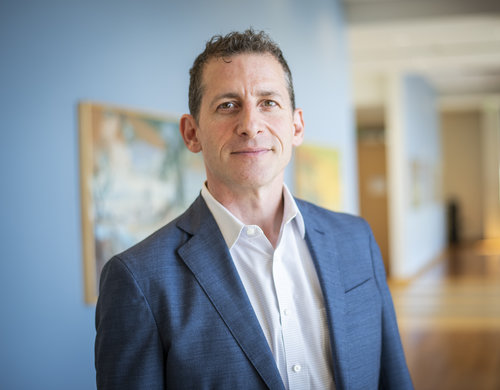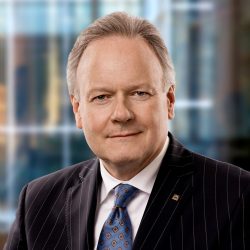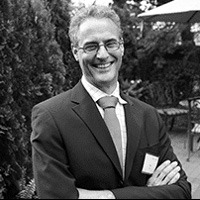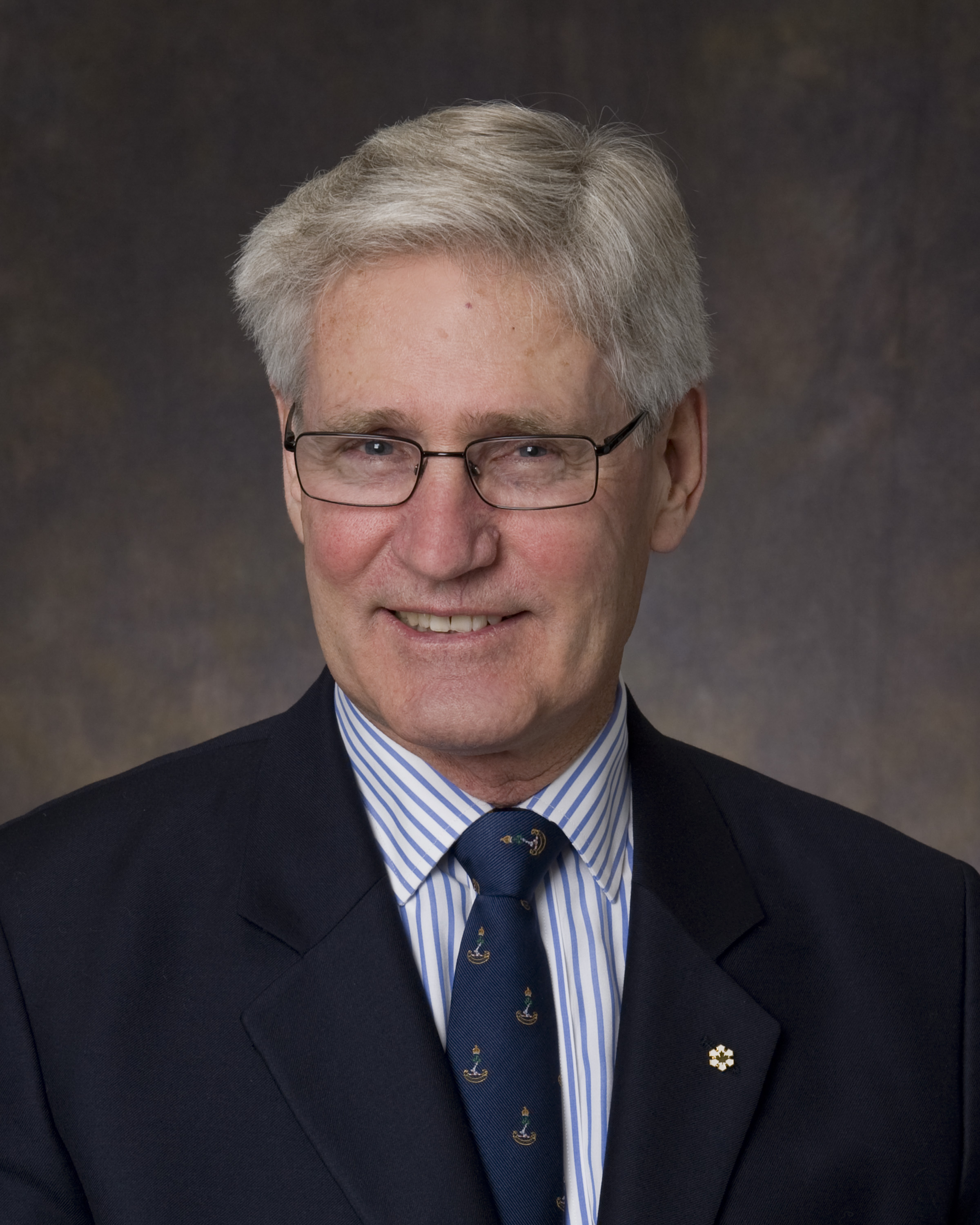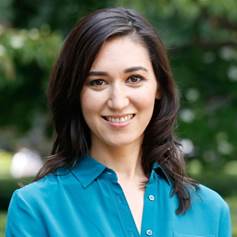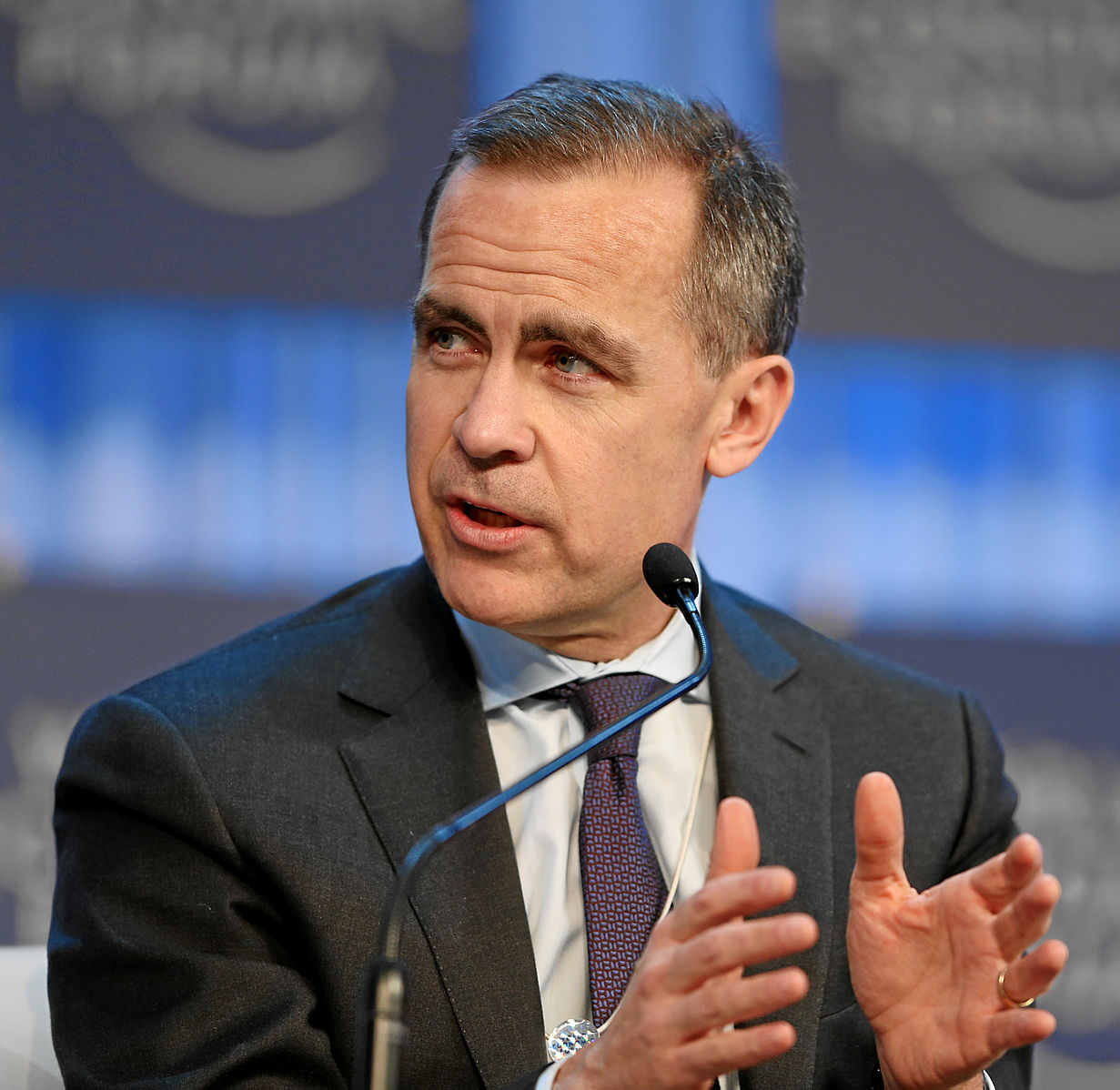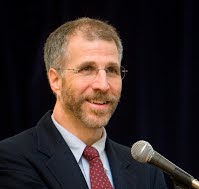Eric J. Hanson Lecture Series
The Eric J. Hanson Lecture Series was established by friends and colleagues of Eric J. Hanson to commemorate his contributions to economics and to public policy in Alberta. Eric Hanson joined the Department of Economics at the University of Alberta in 1946, and he was Professor and Head from 1957-64. His work spanned all aspects of public finance, including education finance, health care finance, federal-provincial relations, and energy economics and the oil industry. The Hanson lecture features a distinguished economist addressing an important public policy question.
Short Biography of Eric Hanson
Hanson Lecture - May 2023
- Speaker: Professor Thomas Lemieux, Professor at the Vancouver School of Economics at the University of British Columbia
- Title: Unions and Earnings Inequality in the 21st Century
- Date: Thursday May 25, 2023 (4:00 - 6:00 pm)
- Place: BUS 2-09
EVENT DESCRIPTION:
Professor Lemieux will talk about how the decline in unionization has contributed to growing inequality in Canada, the United States, and other countries. An important challenge when studying this question is that unionized firms are very different from other firms in terms of their size, industry composition, and profitability, making it difficult to assess the causal impact of unions on earnings. Professor Lemieux will discuss how recent research has helped make progress on these issues.
ABOUT THE SPEAKER:
Thomas Lemieux is a Professor at University of British Columbia’s Vancouver School of Economics. Prior to moving to UBC in 1999, Professor Lemieux held appointments at the Université de Montréal and at the Massachusetts Institute of Technology (MIT). He is a Research Associate of the National Bureau of Economic Research and a fellow of the Royal Society of Canada, the Society of Labor Economists, and the Econometric Society. Professor Lemieux is the President of the Society of Labor Economists and a past President of the Canadian Economics Association, which awarded him the Rae Prize for outstanding research in 1998. He has served as co-editor major journals in economics, including the American Economic Review. Lemieux has written extensively on labour markets and earnings inequality in Canada, the United States and other countries. He has also made contributions to the methodology of empirical research in labour economics.
Recent Lectures
2022
- Speaker: Professor Paul Ferraro, Bloomberg Distinguished Professor, Carey Business School and Bloomberg School of Public Health and Whiting School of Engineering, Johns Hopkins University, USA
- Title: The Promise and Pitfalls of Applying Insights from Psychology and Neuroscience to Address Public Policy Challenges
- Date: May 19, 2022
- Place: BUS 2-09
- Link to the recording of the presentation
EVENT DESCRIPTION:
The Promise and Pitfalls of Applying Insights from Psychology and Neuroscience to Address Public Policy Challenges, Paul J. Ferraro, Bloomberg Distinguished Professor, Johns Hopkins University In most policy settings, success is impossible without changes in human behavior. Growing recognition of this fact has encouraged policy makers and program designers to turn to the behavioral sciences for insights that can enhance program impacts and cost-effectiveness. Professor Ferraro will discuss the promise and the pitfalls of applying these insights to address public policy challenges and the degree to which these insights complement, rather than substitute for, insights from economics.
ABOUT THE SPEAKER:
Professor Paul Ferraro, Bloomberg Distinguished Professor, Carey Business School and Bloomberg School of Public Health and Whiting School of Engineering, Johns Hopkins University, collaborates with scientists, lawyers, engineers, and program administrators to develop evidence-based programs to solve society’s most pressing problems. His research aims to incorporate insights from the behavioral sciences into program designs and to measure program impacts on the environment and human welfare.
2020
- Speaker: Stephen S. Poloz, Governor of the Bank of Canada
- Title: Monetary Policy in Unknowable Times
- Date: May 25, 2020 at 11:30 am (Edmonton time)
- WEBCAST
EVENT DESCRIPTION:
Uncertainty has always been a factor in monetary policymaking, but events of the past decade—capped by the current coronavirus pandemic—have moved uncertainty from an economist’s technicality to the policymaker’s main preoccupation. This has forced an evolution in how policymakers deal with uncertainty, turning monetary policymaking into an exercise of risk management. This lecture will illustrate this evolution in monetary policymaking through a number of case studies. It will discuss efforts underway to make risk management more rigorous—notably through advances in incorporating financial stability risks in the conduct of monetary policy—and suggest how the lessons of the past decade can be applied during the pandemic recovery period.
ABOUT THE SPEAKER:
Mr. Poloz has been Governor of the Bank of Canada since June 3, 2013. Born in Oshawa, Ontario, Mr. Poloz has over 30 years of public and private sector experience. An economist by training, he first joined the Bank of Canada in 1981 and occupied a range of increasingly senior positions over a 14-year span. Mr. Poloz then spent four years at BCA Research as managing editor of its flagship publication, The International Bank Credit Analyst.Mr. Poloz joined Export Development Canada in 1999 as Vice-President and Chief Economist. From 2008 to 2010, he was responsible for all of EDC’s lending programs, as well as the Economics and Corporate and International Trade Intelligence groups. He became EDC’s President and CEO in January 2011, a position he held until his appointment at the Bank of Canada.
Mr. Poloz resides in Ottawa with his wife Valerie. He has two children, Jessica and Nicholas, and he is a grandfather.
2019
- Speaker: Professor Daniel Trefler, Rotman School of Management, University of Toronto
- Title: Populism, Inequality and Globalization: From the Rialto to Wall Street
- Date: Monday September 30, 2019 (4:00 - 6:00 pm)
- Place: Humanities Centre Lecture 2
EVENT DESCRIPTION:
Award winning University of Toronto economist Daniel Trefler will present on "Populism, Inequality and Globalization: From the Rialto to Wall Street," and will explore the conditions that have weakened the economic, political and social pillars of liberal democracy and fueled a populist response.
ABOUT THE SPEAKER:
Daniel Trefler is the J. Douglas and Ruth Grant Chair in Competitiveness and Prosperity at the Rotman School of Management, a Senior Research Fellow at the Canadian Institute for Advanced Studies, and a Bank of Canada Fellow. Professor Trefler is an internationally respected trade economist, known for his path-breaking contributions to fundamental research. This research has been instrumental in the design and pursuit of trade agreements that promote productivity, innovation and investment while minimizing the harmful effects on workers and the most disadvantaged. In recent years he has advised Global Affairs Canada on national policies towards foreign direct investment and helped to frame the document that launched the Canada-EU trade agreement. The importance and influence of Professor Trefler’s work has been recognized through numerous distinctions including the 2016 Killam Prize in Social Sciences, a Canada Research Chair, and all three major awards of the Canadian Economics Association.
2018
- Speaker: Professor Robin Boadway, Queen's University
- Title: An Agenda for Tax Reform in Canada
- Date: Thursday October 11, 2018 (4:00 - 6:00 pm)
- Place: Humanities Centre Lecture 1
- Slides
- Video
EVENT DESCRIPTION:
Over 50 years ago, the Carter Commission enunciated the ideals on which the tax system should be based. It argued in favour of a tax base approximating comprehensive income, epitomized in the slogan that “a buck is a buck”. The federal and provincial tax systems in Canada pay lip service to the comprehensive income ideal, but piecemeal tax reforms have gradually moved the tax system away from income and towards consumption as the actual base. Meanwhile, economic circumstances facing Canada have changed considerably, and tax principles and practices worldwide have evolved. We argue that the time has come to rethink the principles of taxation for Canada. We argue for a multidimensional approach to tax policy, and propose a set of incremental policy reforms that will meet the needs of the Canadian federation in the 21st century.
ABOUT THE SPEAKER:
Robin Boadway is the David Chadwick Smith Professor Emeritus in the Department of Economics at Queen’s University. He is a Past-President of the Canadian Economics Association and of the International Institute of Public Finance, and is former Editor of the Journal of Public Economics and the Canadian Journal of Economics. He is an Officer of the Order of Canada and a Fellow of the Royal Society of Canada. His research interests include fiscal federalism, tax theory and policy, and cost-benefit analysis.
2017
- Speaker: Professor Meredith Fowlie, University of California, Berkeley
- Title: The Changing Economics of Electricity Markets
- Date: December 5, 2017 (4:00 - 6:00 pm)
- Place: Humanities, L1, University of Alberta
- Video
EVENT DESCRIPTION:
Professor Fowlie will discuss a confluence of factors that are fundamentally changing how electricity markets operate. These include the increasing penetration of variable renewable energy sources, increasingly responsive demand, falling storage costs, and climate change policy. Economists have been actively investigating how these developments are impacting electricity market outcomes and what these impacts imply for electricity market design and regulation. Professor Fowlie will highlight some research insights from California that could be particularly relevant to ongoing policy discussions in Alberta.
ABOUT THE SPEAKER:
Dr. Meredith Fowlie holds the Class of 1935 Endowed Chair in Energy at UC Berkeley. She is an Associate Professor in the Agriculture and Resource Economics department, an affiliated faculty of the Energy and Resources Group, a research affiliate at the Energy Institute at Haas, and Research Associate at the National Bureau of Economic Research in the Energy and Environmental Economics group. She received her Ph.D. from UC Berkeley. Professor Fowlie is an applied economist working at the intersection of industrial organization, energy markets, and environmental economics. She has worked extensively on the economics of energy markets and the environment. Her research investigates real-world applications of market-based environmental regulations, the economics of energy efficiency, the demand-side of energy markets, and energy use in emerging economies. Her work has appeared in The American Economic Review, the Journal of Political Economy, The Review of Economics and Statistics, and other academic journals.
2017
- Speaker: Professor Emi Nakamura, Columbia Business School
- Title: How do Macroeconomists Measure the Effects of Monetary and Fiscal Policy?
- Date: March 9, 2017 (4:00 - 6:00 pm)
- Place: Humanities, L1, University of Alberta
- Video
EVENT DESCRIPTION:
Professor Nakamura will talk about how macroeconomists measure the effects of monetary and fiscal policy. The big challenge in macroeconomics is that there is no real "experiments" with which to measure these effects. Governments tend to cut interest rates and do fiscal stimulus during recessions -- so just looking at what happens to the economy after these interventions makes it difficult to distinguish between correlation and causality. She will discuss some ways macroeconomists try to get around these issues, and what we have learned from this research.
ABOUT THE SPEAKER:
Dr. Emi Nakamura is Associate Professor at Columbia Business School and a Research Associate of the National Bureau of Economic Research. She received her Ph.D. from Harvard University and her B.A. from Princeton University. Professor Nakamura is a macroeconomist whose fields of research include monetary and fiscal policy, business cycles, finance, exchange rates, and macroeconomic measurement. Professor Nakamura has published extensively in the most prestigious journals in economics such as American Economic Review and Quarterly Journal of Economics. She is a Associate Editor of Quarterly Journal of Economics, Economica and the Journal of Economic Perspectives. She is the recipient of many prestigious awards such as a NSF dissertation fellowship, a Sloan Research fellowship, NSF CAREER grant and the 2014 Elaine Bennett Research Prize. In 2014, Professor Nakamura was listed as one of the 25 most influential young economists by the International Monetary Fund.
2016
- Speaker: Professor Kathryn E. Spier, Harvard University
- Title: Recent Developments in the Economics of Litigation
- Date: March 17, 2016
ABOUT THE SPEAKER:
Dr. Kathryn E. Spier is the Domenico de Sole Professor of Law at the Harvard Law School and a Research Associate of the National Bureau of Economic Research. She received her Ph.D. in economics from M.I.T. and her B.A. in mathematics and economics from Yale University. Before joining the Harvard Law School in 2007, she was for thirteen years a professor in the Management and Strategy department at the Kellogg Graduate School of Management at Northwestern University and served as the Richard M. Paget Distinguished Professor. Before that, she served as assistant and associate professor in the Harvard Economics Department. Professor Spier is currently serving as the President of the American Law and Economics Association. She is a co-editor of the RAND Journal of Economics and a member of the editorial board of the Journal of Law, Economics, and Organization. Dr. Spier has published extensively in the fields of law and economics and industrial organization. Her areas of interest include the economics of litigation, contracts, tort law, antitrust, and business organization. Professor Spier's seminal theoretical work on litigation has contributed to set the foundations of modern economic analysis of legal institutions. Her current research on contracts and bargaining institutions is supported by a grant from the National Science Foundation.
2015
- Speaker: Professor James D. Hamilton, University of California at San Diego
- Title: Energy Challenges for the 21st Century
- Date: March 27, 2015
ABOUT THE SPEAKER:
Dr. James D. Hamilton is a Professor in the Economics Department at the University of California at San Diego and a Research Associate of the National Bureau of Economic Research. He has also taught at Harvard University and the University of Virginia. He received a Ph.D. in economics from the University of California at Berkeley. Professor Hamilton has published on a wide range of topics. Academic honors include election as a Fellow of the Econometric Society, Best Paper Award for 2010-2011 from the International Institute of Forecasters, and 2014 award for Outstanding Contributions to the Profession from the International Association for Energy Economics. Dr. Hamilton has been a visiting scholar at the Federal Reserve Board in Washington, DC, as well as the Federal Reserve Banks of Atlanta, Boston, New York, Richmond, and San Francisco. He has also been a consultant for the National Academy of Sciences, Commodity Futures Trading Commission and the European Central Bank and has testified before the United States Congress.
2013
- Speaker: Dr. Mark Carney, Governor of the Bank of Canada
- Title: Monetary Policy after the Fall
- Date: May 1, 2013
ABOUT THE SPEAKER:
Dr. Mark Carney was appointed Governor of the Bank of Canada in 2008. He received a bachelor’s degree in economics from Harvard University, and a master’s degree in economics and a doctorate in economics from Oxford University. Prior to joining the public service, Dr. Carney had a thirteen-year career with Goldman Sachs in its London, Tokyo, New York and Toronto offices. He was appointed Deputy Governor of the Bank of Canada in August 2003. In November 2004, he left the Bank to become Senior Associate Deputy Minister of Finance – a position he held until his appointment as Governor of the Bank. While serving as Governor of the Bank of Canada, Dr. Carney was also appointed as Chairman of the Financial Stability Board (FSB) in November 2011 for a three year term. In 2013, he departed the Bank of Canada to become the Governor of the Bank of England.
2012
- Speaker: Professor Severin Borenstein, University of California at Berkeley
- Title: What It Will Take to Make Renewable Energy Competitive?
- Date: October 26, 2012
ABOUT THE SPEAKER:
Dr. Severin Borenstein is the E.T. Grether Professor of Business Administration and Public Policy at the Haas School of Business,University of California at Berkeley. He is also Director Emeritus and research associate of the University of California Energy Institute at Haas, and research associate of the National Bureau of Economic Research. Professor Borenstein received his A.B. for U.C. Berkeley and his Ph.D. in Economics from M.I.T. His research focuses on business competition, strategy, and regulation. He has published extensively on the airline industry, the oil and gas industries, and electricity markets. His current research projects include the economics of renewable energy, economic policies for reducing greenhouse gases, alternative models of retail electricity pricing, and competitive dynamics in the airline industry. Dr. Borenstein served on the Board of Governors of the California Power Exchange from 1997 to 2003. During 1999-2000, he was a member of the California Attorney General's Gasoline Price Task Force. In 2010-2011, he was as member of U.S. Secretary of Transportation Ray LaHood's Future Aviation Advisory Committee. In 2012-2013, he served on the Emissions Market Assessment Committee, which advised the California Air Resources Board on the operation of California's Cap and Trade Market for greenhouse gasses. Since 2014, he has been a member of the California Energy Commission's Petroleum Market Advisory Committee.

